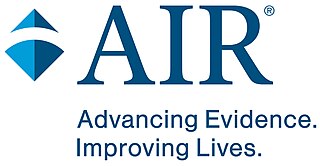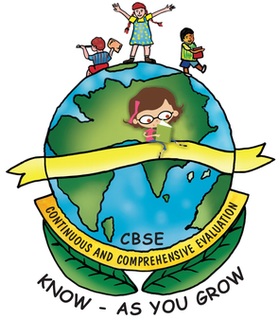 W
WThe American Institutes for Research (AIR) is a nonprofit, nonpartisan behavioral and social science research, evaluation and technical assistance organization based in Washington, D.C. One of the world's largest social science research organizations, AIR has more than 1,800 staff in locations across the United States and abroad.
 W
WContinuous and Comprehensive Evaluation (CCE) was a process of assessment, mandated by the Right to Education Act, of India in 2009. This approach to assessment was introduced by state governments in India, as well as by the Central Board of Secondary Education in India, for students of sixth to tenth grades and twelfth in some schools. From this the smaller classes student would have a practice to face the exam of board in younger age. The Karnataka government introduced CCE for grades 1 through 9 later it was also introduced for 12th grades students. The main aim of CCE was to evaluate every aspect of the child during their presence at the school. This was believed to help reduce the pressure on the child during/before examinations as the student will have to sit for multiple tests throughout the year, of which no test or the syllabus covered will be repeated at the end of the year, whatsoever. The CCE method was claimed to bring enormous changes from the traditional chalk and talk method of teaching, provided it is implemented accurately.
 W
WThe Delaney card is a method of classroom management. This small one-by-three-inch card has been used extensively in the New York metropolitan area since the 1950s. Each Delaney card contains the name of one student in class, and lists the name, telephone number, address and other vital information for each student.
 W
WThe Early Admissions Scheme (EAS) was a subsystem of the Joint University Programmes Admissions System (JUPAS) developed by the University Grants Committee of Hong Kong. The scheme had been adopted between the academic year of 2002/03 to 2010/11. It enabled students who skipped the HKALE to enter the University of Hong Kong, the Chinese University of Hong Kong or the Hong Kong University of Science and Technology. Candidates who received 6 or more "A"s, attained level 4 or above in English Language and Chinese Language, or obtained "C" or above in French or Putonghua in the HKCEE, were eligible to take part in the scheme, which might grant them admission to the aforementioned institutions without requiring them to sit for the HKALE.
 W
WThe National Assessment of Educational Progress (NAEP) is the largest continuing and nationally representative assessment of what U.S. students know and can do in various subjects. NAEP is a congressionally mandated project administered by the National Center for Education Statistics (NCES), within the Institute of Education Sciences (IES) of the U.S. Department of Education. The first national administration of NAEP occurred in 1969. The National Assessment Governing Board (NAGB) is an independent, bipartisan board that sets policy for NAEP and is responsible for developing the framework and test specifications.The National Assessment Governing Board, whose members are appointed by the U.S. Secretary of Education, includes governors, state legislators, local and state school officials, educators, business representatives, and members of the general public. Congress created the 26-member Governing Board in 1988.
 W
WThe National Record of Achievement was a folder given to secondary school pupils in the United Kingdom in the 1990s and early 2000s. It was a portfolio of documentation related to a pupil's academic and non-academic achievements, typically including GCSE certificates, certificates from extracurricular activities, school reports and anything else of relevance, presented in an official-looking folder.
 W
WA report card, or just report in British English, communicates a student's performance academically. In most places, the report card is issued by the school to the student or the student's parents once to four times yearly. A typical report card uses a grading scale to determine the quality of a student's school work. Throughout North America, the grading scale consists of grades scored in classes taken by the student. Report cards are now frequently issued in automated form by computers and may be mailed to parents and students. Traditional school report cards contained a section for teachers to record individual comments about the student's work and behavior. Some automated card systems provide for teachers' including such comments, but others limit the report card to grades only.